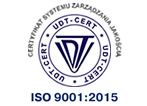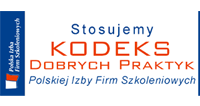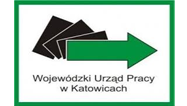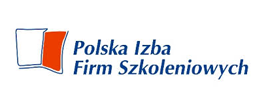Zaawansowane negocjacje handlowe – warsztaty w języku angielskimhttps://effect.edu.pl/wp-content/uploads/2017/06/logo.pngOśrodek Szkoleń i Informacji Effecthttps://effect.edu.pl/wp-content/uploads/2017/06/logo.png200px200px
http://144.76.189.48/pdf-new.php?url=https://effect.edu.pl/szkolenia-sprzedazowe-szkolenia-marketing/szkolenie-negocjacje-handlowe
Szkolenie zaawansowane negocjacje handlowe – warsztaty w języku angielskim
– warsztaty opracowane i prowadzone przez zawodowego negocjatora Tomasza Sidewicza
„The secret of business is to know something that nobody else knows”
Aristotelis Onasis
IMPORTANT NOTICE – The training is conducted at the Academic English level. If all prospect participants are Polish it is strongly recommended to conduct it in Polish, unless all participants are real fluent English speakers. The recommendation is due to the fact there are many scientific aspects (psychiatry, neurobiology, sociobiology, cognitive science, etc) that require a high level of English proficiency to describe selling and negotiation processes at advanced level.
Benefits for Participants of the training:
The training focuses on advanced methods of negotiation strategies (B2B) taking into account the principles of negotiation, persuasion and influence. The practical nature of the training allows participants to see and feel themselves what areas of their skills require finishing touches. Training / negotiation game indicates the efficiency in negotiations is not limited to pure knowledge of all possible techniques. The effectiveness in the business is the result of an adequate mix of character traits and predispositions, skills and circumstances in which we are. Training is recommend to Key Accounts Managers, Area Sales Managers who want to expand their knowledge and gain practical skills in the field of B2B negotiations and have a basic knowledge supported success in negotiations B2B.
uczestnicy szkolenia z negocjacji handlowych wybrali również:
ORGANIZACJA
Wybierz termin szkolenia:
CELE I KORZYŚCI
Szkolenie zaawansowane negocjacje handlowe – warsztaty w języku angielskim – cele i korzyści:
The training consists of three modules
- Theory, which allows you to consolidate your knowledge and understand the interdisciplinary nature of negotiations and selling (20% of training time)
- Analytical, the analysis of selected case studies representing 100% natural video material registered during the training (40% of training time)
- Practical, associated with the real sale-negotiating game, which is played among the participants of the training and the expert. The game is led by the expert to check primarily the attitude, motivation, self-confidence, assertiveness, susceptibility to the influence of others and the ability to influence and persuade others in the process of sales and negotiations. During the game, natural conditions for all actions of selling and negotiations are created, the outcome of which affects one’s status quo. A minor error can dramatically change the course of the game for the benefit of someone else. Emotions and attitudes affect participants in the game. The advantage of this game is its naturalness, because the participants set the rules, negotiating them with each other. Participation in the game guarantees a response as far as the additional areas of development in the field of selling, negotiation, communication, persuasion. The game played by the participants should not be a zero-sum game leading to I win and you lose. Scenario of the game provides WIN – WIN strategy for everyone. Interestingly, participants rarely follow such a possibility.
Why turn-based strategy game is better than typical training role playing scenes?
- Participants take part in real situations. They do not act in scenes and do not fall in acting roles, which, due to their lack or excess of attributes may lead them to false acting performance.
- During the training, there is no need for the sake of role playing scenes to find any scapegoat
– the rescuer who saves others from having to leave their comfort zone and take part in a role playing scene. - The game is designed to let each participant be able to literally feel the essence of the negotiations and selling, with all the consequences of their decisions, or lack thereof.
- The game is not a simulation. Everything in the game is real. Emotions generated on one side of the table affect the other side of the table.
- The game consists of turns, which allow participants to check all negotiating tactics (short moves) as well as a longer negotiation strategies that might lead them to a predetermined goal.
- The continuity of the game allows participants to negotiate benefits for future, without having to think only in terms of ad-hoc benefits, which takes place in the course of standard role playing scenes.
- Negotiations with one partner can have a huge impact on the negotiations with another.
- Due to multi turn-based aspect of the game, and so-called iterated prisoner’s dilemma (game theory in mathematics), the participants can experience and feel themselves the consequences of their negotiations with the same partner, who in the next round may want to return the favor for harm inflicted on them in earlier turns (breach of the principle of win – win).
- For the purpose of further evaluation performance sheet of the individual players is available. Objective performance sheet can be used to assess the competence of the participants in the area of training.
- Acquisition of knowledge is based on so-called „Emotional memory”, which is far more durable than the logical-mechanical memory in a brain. Learning in the game comes from the surrounding world corresponding to natural emotions and performed moves, remembered as the result of that process. For example, in the real life a child learns the relation between pedaling and maintaining balance on the bike. Participants learn from their mistakes, which are penalized by others during the game (iterated prisoner’s dilemma in game theory in mathematics).
- All participants engaged in the game always receive instant feedback in the form of the achieved effect in negotiation / sales / influence / persuasion. If anyone makes a mistake, it quickly affects his or her status quo. Negotiated status quo in the game always generates emotions which, in the case of constant repetition, remain relatively long and cause structural, permanent changes in emotional memory, which becomes an investment for life.
- The training requires creativity, commitment and action. The passive attitude prevents them from getting to know each other and their areas of further development. In other words – just watching how others practice does not guarantee any lasting assimilation skills. It only allows master theoretically, not practically.
- Each participant who was involved in the game and tried to their 100% of abilities is enriched with practical experience, mastered at least one technique, with objective feedback about themselves given to them not only by the expert. Best Practice takes place.
- The expert in the game does not avoid interaction with other players, thus the opportunity to test their skills against the expert is given.
- In the opinion of the participants the highest value of such training is the ability to see oneself in real action, which is an invaluable source of information about themselves.
Terms of conducting training for contractor
The practical training focuses on skills in sales, negotiation and communication, which develop primarily through practice rather than theory exploration. The course of exercises depend on the participants and their commitment and motivation to develop themselves! The main advantage of exercise is instant feedback given to participants instantly. This is due to the fact that all the activities are based on real life situations. These are not role playing scenes. Poorly executed exercise gives you immediate feedback in what area you have to work, if one cares to strengthen such an area. The second source of feedback is VIDEO material recorded during training.
PROGRAM
zaawansowane negocjacje handlowe – warsztaty w języku angielskim – program szkolenia:
The art of negotiation is a game of „something for something”. This game can be played on many levels between you and your partner and should not be limited only to bargaining. You always have to take into account other possible agreements that may be negotiated . This art of doing business, based on the game on the principle of SOMETHING FOR SOMETHING, seemingly simple, is based on some rules. Remember that negotiation is an interdisciplinary field that is not limited only to knowledge of the principles and techniques.
- Strength of character and charisma. What does it mean to be an effective negotiator.
- Let’s talk about your motivation to work! What drives you?
- Your morale – self-esteem and work ethic trader in Poland and in the world . Does this profession enjoy public confidence?
- Different personalities are different types of clients – why do we forget?
- Why „excellent qualities” of „super product / service” are not always „benefits” for the client.
- Do you know the basics of marketing and economics? – What the company’s strategy has to do with the competence of negotiators?
- Marketing scenarios – the strength and the weakness of the product, the market, the seller and the buyer. What do you need to consider when negotiating cooperation?
- Refute the myth prices – the power of arguments that price is not the most important thing!
- When the price may be high, and when must always be low? What is the reason and are there any techniques helpful in such these situations?
- Everyone knows how to count – when you are able to defend the price, and when you will not succeed
- Cardinal mistakes made in the process of selling and ways to repair / mask
– analysis of video case - Advanced principles of persuasion-influence – in negotiations. Practical presentation of techniques and principles against which it is difficult to defend and sometimes it is even impossible – analysis of video case.
- Magic tricks and techniques do not exist. Whether the tool works or not depends on many factors needed to consider before usage.
- First step – can you gain the trust of the client? Maybe it’s better to intrigue him, challenge him, and sometimes even piss off? – Analysis of video case
- ZOPA – do we have anything to talk about and what do we trade? – Analysis of video case.
- ZOPA and relationships in business?
- BATNA and its impact on defense and the final result of negotiations – analysis of video case.
- The conversation with the client – who is manipulating whom ? – analysis of video case
- How to sustain the interest in our offer? How simple suggestions generate strong emotions?
- How to use difficult situations to overcome the resistance of a partner – a video case study.
- The impasse and the dog in the manger attitude in negotiating process – how to deal with difficult people?
- How to defend your position and not get chewed over or how to go from „NO” and come to „YES”.
- What to do when the client disposes us or criticize our offer
- Are there keys to the heads of recalcitrant clients? Practical exercise gives the answer
- How do we know that the client is either to say YES or NO. How to use this knowledge in practice?
- Difficult and demanding clients and their tricks.
- Methods for conducting advanced negotiations – analysis of video case
- Closing the negotiations.
- Mistakes made during the closing negotiations – analysis of video case
- I close it and then what?
- Summary of training.
- Questions and Answers – brainstorming.
- Conclusion – the counting of points.
- What to do to sell more and earn more – exchange of experiences – BEST PRACTICE session.
- Why I (am) lost and why they won? – Questions and Answers – analysis of strategies used by the participants in the game based on the results.
The expert reserves the right to change the order of the program due to the dynamics of the training. The training is not based on line. The participants and their behavior/negotiations affect the course of the training.
WYKŁADOWCA
Zaawansowane negocjacje handlowe – warsztaty w języku angielskim poprowadzi zawodowy negocjator:
Tomasz Piotr Sidewicz
Trener biznesu, ekspert w dziedzinie zarządzania, perswazji, wywierania wpływu i negocjacji. Zawodowy negocjator.
W obszarze negocjacji ze związkami zawodowymi ma ma nie tylko doświadczenie ale i sporo sukcesów:
- Prowadził negocjacje w imieniu zarządu ze ZZ, które sabotowały strajkiem włoskim konieczność pracy w weekendy.
- Prowadził negocjacje ze ZZ służby zdrowia.
- Prowadził negocjacje ze ZZ w spółce skarbu państwa, gdzie ZZ nie zgadzały się z polityką zarządu, którą uważały za zbyt opresyjną względem załogi.
- Prowadził negocjacje ze ZZ w firmie prywatnej, gdzie ZZ domagały się podwyżek płac i groziły akcją protestacyjną.
- Doradzał zarządowi spółki skarbu państwa, jak prowadzić komunikację ze ZZ oraz załogą w świetle wprowadzanych zmian.
- Komentował w prasie negocjacje pomiędzy ZZ a rządem, gdzie przedstawił strategie prowadzenia negocjacji i ich konsekwencje.
- Prowadził negocjacje w imieniu prezesa spółdzielni, z członkami, gdzie jego zadanie polegało na przekonaniu 40 członków do dania mandatu zaufania dla obecnego prezesa.
- Prowadził negocjacje z grupą 150 osób, które były niechętne działalności firmy na swoim terenie.
Specjalizuje się w podnoszeniu efektywności menedżerów.
Dzieli się wiedzą i doświadczeniem z ludźmi, którzy widzą potrzebę rozwoju swoich kompetencji.
Wspiera polskie i zagraniczne firmy, właścicieli firm, topowych menedżerów w zarządzaniu oraz negocjowaniu wielomilionowych kontraktów (największa transakcja przekraczała 1.400.000.000 PLN).
Posiada dyplom Uniwersytetu w Michigan, z zakresu znajomości języka angielskiego jako drugiego języka.
Doświadczenie zawodowe oraz profesjonalizm potwierdzone są licznymi referencjami od klientów, udziałem w medialnych przedsięwzięciach oraz współpracą ze światem biznesu, ośrodkami naukowymi i mediami.
Autor licznych artykułów dla pism branżowych, takich jak Essence Magazine, Businessman Magazine, Puls Biznesu, Rzeczpospolita oraz KrymiGraf z zakresu technik sprzedaży, negocjacji, wywierania wpływu, analizy pisma oraz analizy lingwistycznej wykorzystywanych w biznesie. Wydawca oraz Redaktor naczelnym czasopisma internatowego „Wiedza to Władza”.
Wybrane pozycje:
– Pajacowanie – związkowiec musi wyjść – Rzeczpospolita, 24.02.2015
– Jak się negocjuje: Rząd kontra lobby zawodowe – Gazeta Prawna, 7 luty 2015
– Negocjacje – level hard. Takich technik używali Bartosz Arłukowicz i Porozumienie Zielonogórskie – Dziennik.pl, Styczeń 2015
– Badanie pisma i jego wykorzystanie w biznesie – Krymigraf nr 17, styczeń 2014
– Badanie pisma w biznesie – J.D. Rockefeller – Krymigraf nr 16, wrzesień, 2013
– Sukces na talerzu – Rzeczpospolita, 23 Styczeń 2012
– Jak skutecznie negocjować? – Magazyn Businessman.pl, Czerwiec 2009
– Automanipulator – Essence – Magazyn Ludzi Sukcesu, Maj 2009
METODY
Zaawansowane negocjacje handlowe – warsztaty w języku angielskim – metody:
Szkolenie składa się z 3 modułów
- Teoretycznego, który pozwala ugruntować swoją wiedzę i zrozumieć interdyscyplinarność własnej natury (20% czasu szkolenia)
- Analitycznego, którego celem jest analiza wybranych case study przedstawiających w 100% naturalne sytuacje zarejestrowane na materiale VIDEO (40% czasu szkolenia)
-
Praktycznego, związanego z prawdziwym treningiem poza strefą własnego komfortu.
Trening jest tak prowadzony przez trenera aby sprawdzić przede wszystkim charakter (postawa), pewność siebie, asertywność, podatność na wpływ ze strony innych i umiejętność wpływania na innych, komunikowania swoich stanowisk i perswadowania, zarządzania emocjami, itp. - W trakcie treningu stworzone są naturalne warunki do działań zmierzających do naturalnych (nie scenkowych) zachowań uczestników, po to aby móc dać każdemu obiektywną informację zwrotną.
- Emocje oraz postawy uczestników wpływają na innych w trakcie treningu. Zaletą treningu jest jego naturalność, ponieważ to uczestnicy tworzą jego zasady.
- Zaangażowanie w trening gwarantuje uzyskanie obiektywnej odpowiedzi dotyczącej dalszych obszarów rozwoju i pracy nad sobą.
ADRESACI
Zaawansowane negocjacje handlowe – warsztaty w języku angielskim – adresaci:
- Właścicieli firm, Członków zarządu, Członków rady nadzorczej.
- Dyrektorów zarządzających, operacyjnych odpowiedzialnych za realizacje celów firmy
- Członków zespołów negocjacyjnych
- Szefów działów handlowych i zakupowych
- Pracowników działów importu-eksportu, którzy na co dzień prowadzą rozmowy handlowe – negocjują w języku angielskim
- Sprzedawców i kupców
- Negocjatorów umów, kontraktów
- Wszystkich, którzy w codziennej pracy negocjują i poddawani są wpływom i manipulacjom
Oceny uczestników wcześniejszej edycji szkolenia zaawansowane negocjacje handlowe – warsztaty w języku angielskim:
POZIOM PRZYGOTOWANIA WYKŁADOWCY DO ZAJĘĆ:
ZAANGAŻOWANIE WYKŁADOWCY W PROWADZENIE SZKOLENIA
UMIEJĘTNOŚĆ PRZEKAZYWANIA WIEDZY PRZEZ WYKŁADOWCĘ:
MIEJSCE SZKOLENIA
ZAPYTAJ O TERMIN SZKOLENIA
KARTA ZGŁOSZENIA
OŚWIADCZENIE ZW. Z VAT
KONSULTANT

KINGA LALKO-SMOŁKA
KOORDYNATOR DZIAŁU SZKOLEŃ OTWARTYCH
tel: +48 32 33 55 150
mobile: +48 662 297 689
e-mail: effect@effect.edu.pl

AGNIESZKA WALAS
SPECJALISTA DS. SZKOLEŃ OTWARTYCH
tel: +48 32 33 55 153
mobile: +48 608 577 231
e-mail: effect@effect.edu.pl
OPINIE KLIENTÓW
-
Krzysztof
"Trener bardzo merytoryczny, dobrze znający temat, potrafiący świetnie przekazać swoją wiedzę oraz doświadczenia".
-
Agnieszka
"Szkolenia przygotowane przez firmę Effect jak zwykle nie zawiodły moich oczekiwań. Pełen profesjonalizm przy organizacji szkolenia, a także przy doborze tematów, ćwiczeń i prowadzących".
Newsletter
BĄDŹ NA BIEŻĄCO
z informacjami o naszych projektach rozwojowych, spotkaniach, ofertach specjalnych.







